LaTeX templates — OUP - Official Templates
Seneste
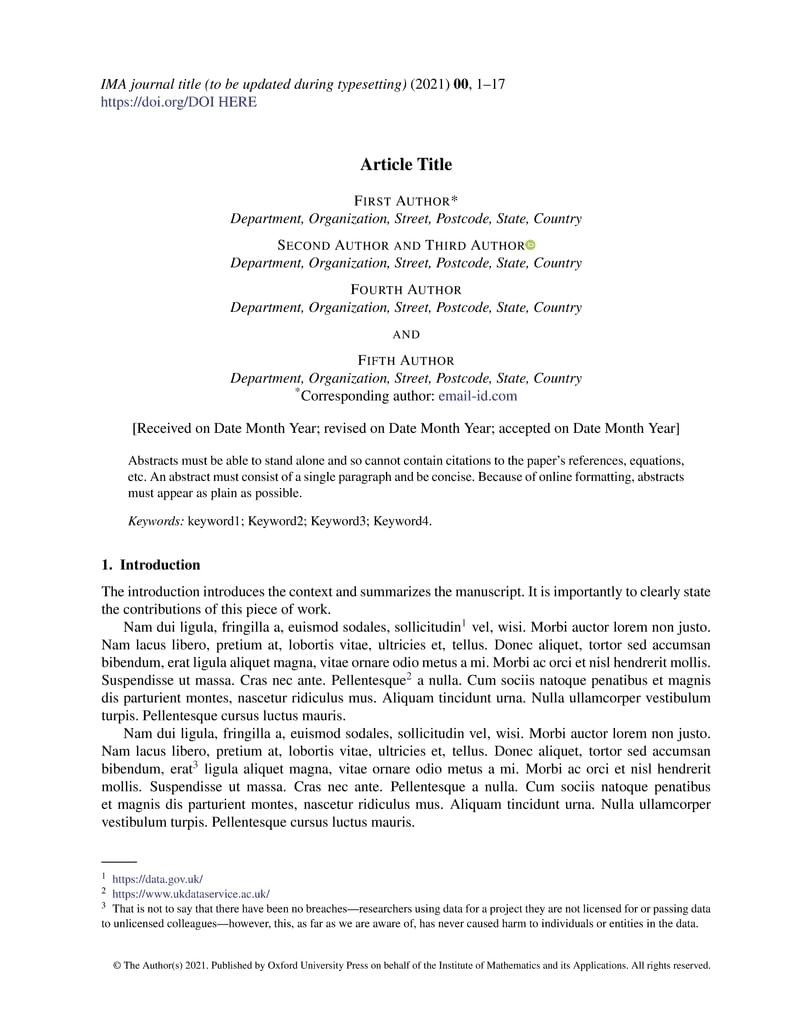
This is a template and guide for preparing papers for the official journals of the Institute of Mathematics and its Applications (IMA): IMA Journal of Applied Mathematics IMA Journal of Numerical Analysis IMA Journal of Management Mathematics IMA Journal of Mathematical Control and Information Mathematical Medicine and Biology: A Journal of the IMA Information and Inference: A Journal of the IMA Teaching Mathematics and its Applications: An International Journal of the IMA Transactions of Mathematics and its Applications Please use the template and its instructions in conjunction with the guidelines on the website of the journal to which you plan to submit: https://academic.oup.com/ima.
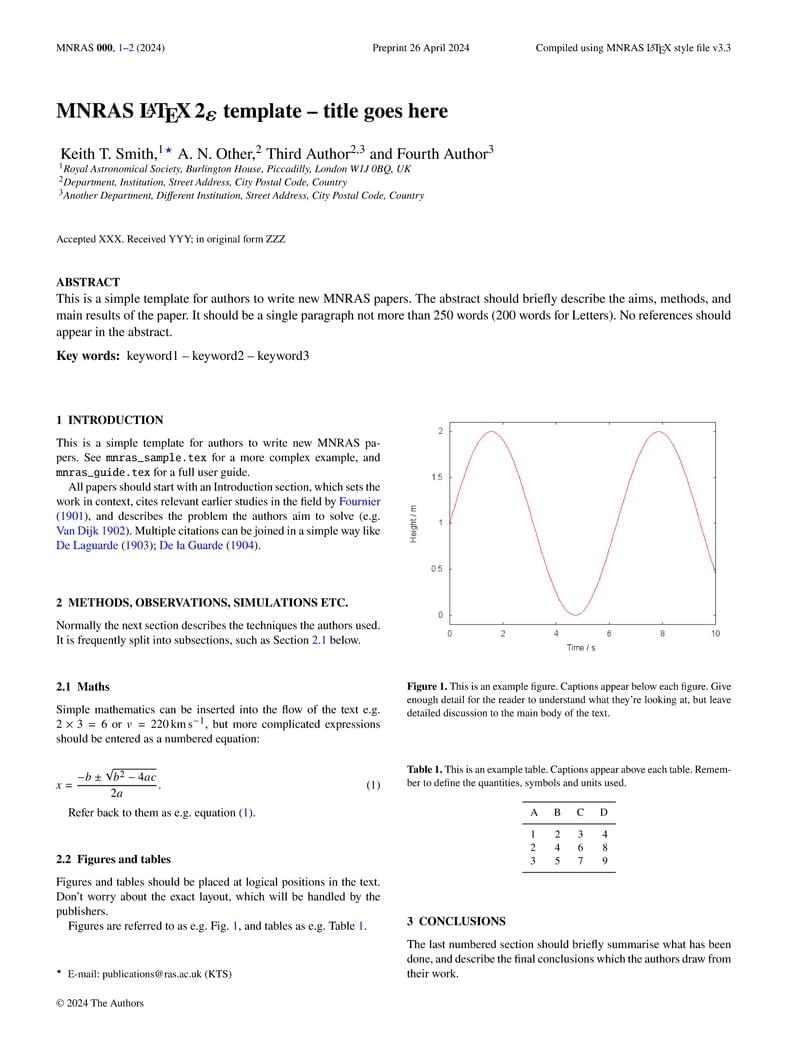
This is a template and guide for preparing papers for Monthly Notices of the Royal Astronomical Society using the 'mnras' LaTeX package. See the mnras_template.tex file (included and used by default when opening the template) for a simple template to help you get started. The mnras_guide.tex file (also included) provides instructions for using the additional features in the document class. This is not a general guide on how to use LaTeX, and nor does it replace the journal's instructions to authors.
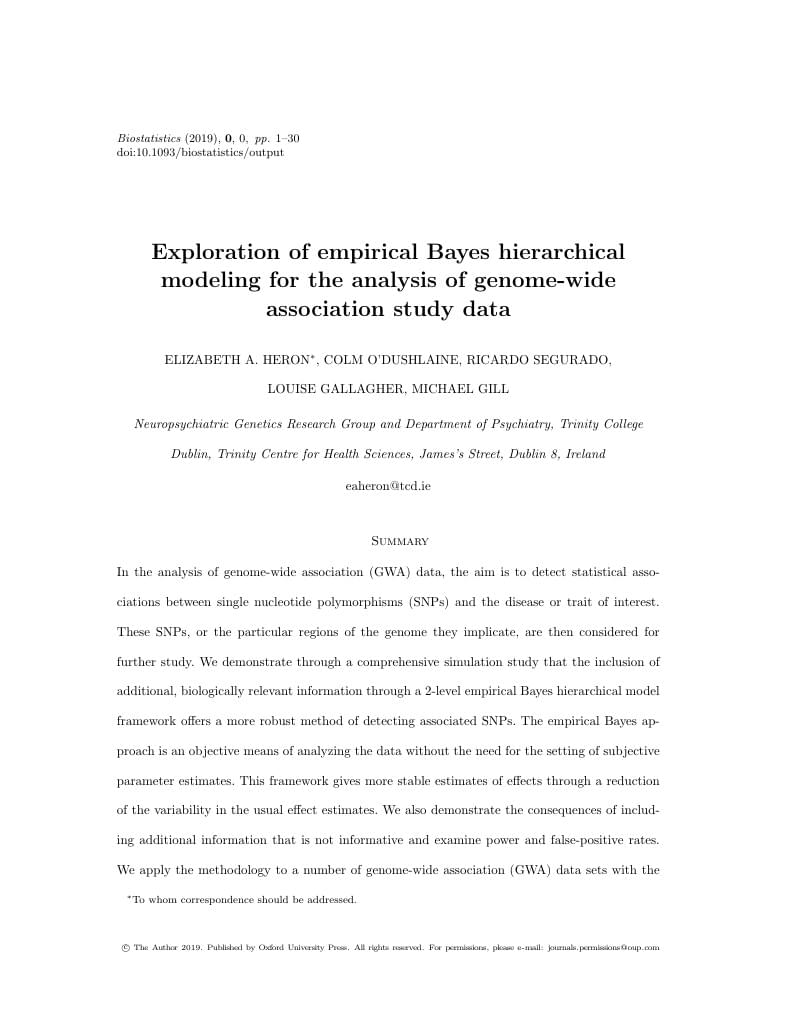
Biostatistics publishes papers that develop innovative statistical methods with applications to the understanding of human health and disease, including basic biomedical sciences. Papers should focus on methods and applications. This template may be used to prepare your submission to Biostatistics. It contains an example article which shows how to include text, figures and references. To begin writing your article, simply click the 'Open as Template' button above. For more information on the journal's requirements, please see their author guidelines. Title, authors and affiliations, summary, keywords the body of the manuscript, acknowledgements, a short section describing the Supplementary Materials, and the references (excluding tables and figures) should not exceed 25 manuscript pages in the draft mode of the template. When you are ready to submit your manuscript please click the Submit to Journal button in the Overleaf editor and follow the instructions provided. Your files will be transferred automatically, without the need for you to download and re-upload any files, and you'll be taken directly to the Biostatistics submission site to complete your submission. We hope you find Overleaf useful for your Biostatistics submission, and please let us know if you have any feedback. If you're new to Overleaf, we've provided a short tutorial video to help you get started.
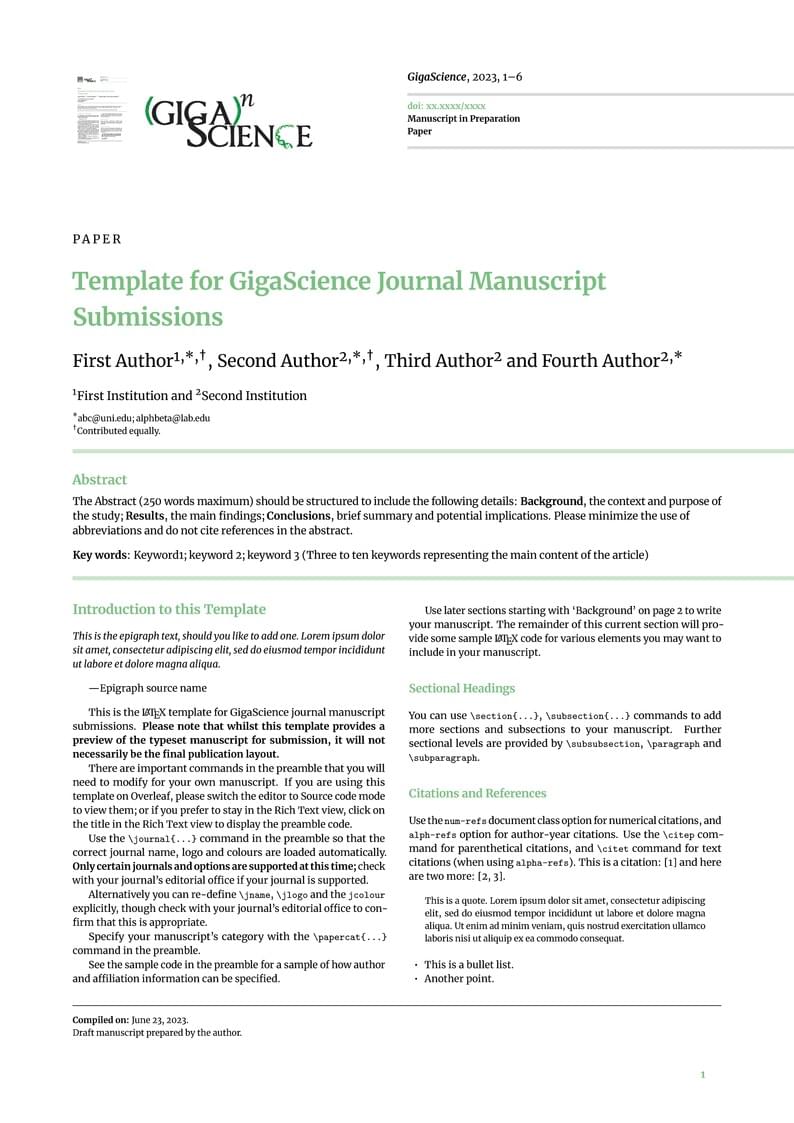
Overleaf and Oxford University Press (OUP) have created this template for authors submitting manuscripts to Gigascience, an open access, open data, open peer-review journal focusing on ‘big data’ research from the life and biomedical sciences. This template allows authors to prepare and edit their manuscripts in the OUP 'contemporary' layout used by Gigascience and other OUP journals. To begin writing, simply click the Open as Template button, above. Additional guidelines for preparing your submission are included within the template itself. Once your manuscript is ready for submission, simply click "Submit to Journal" in the top bar of the Overleaf editor and follow the instructions provided. If you're new to Overleaf and LaTeX, check out our free introductory course for help getting started.
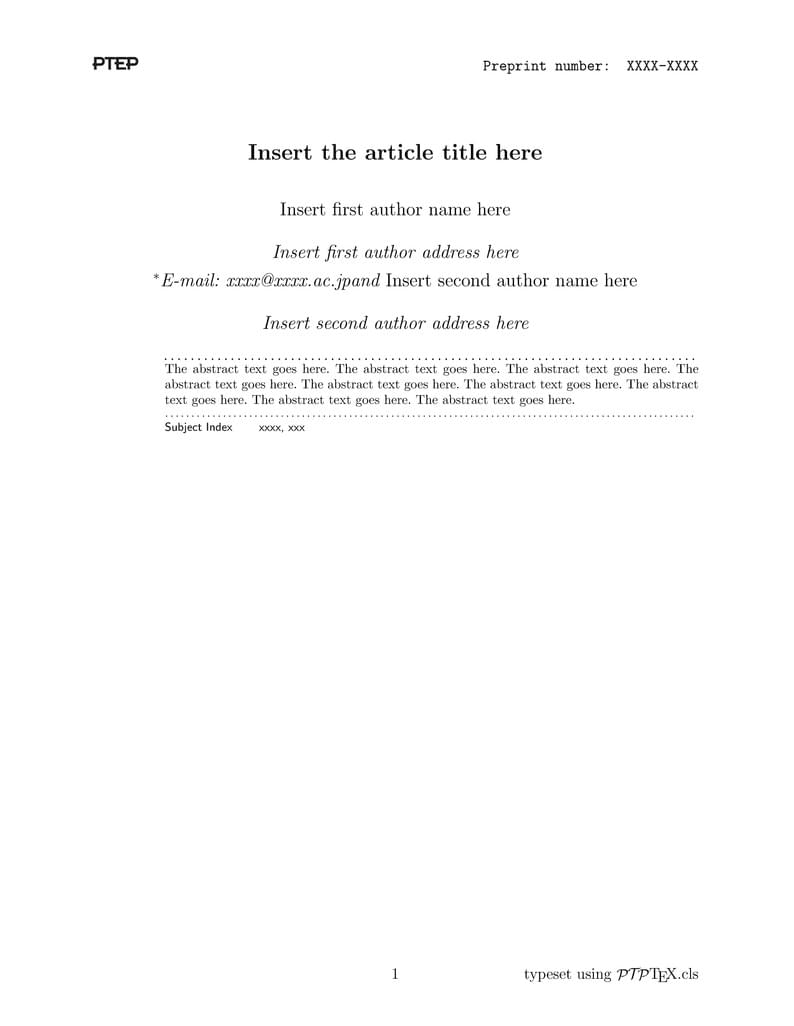
LaTeX template for Progress of Theoretical and Experimental Physics, published by Oxford University Press.
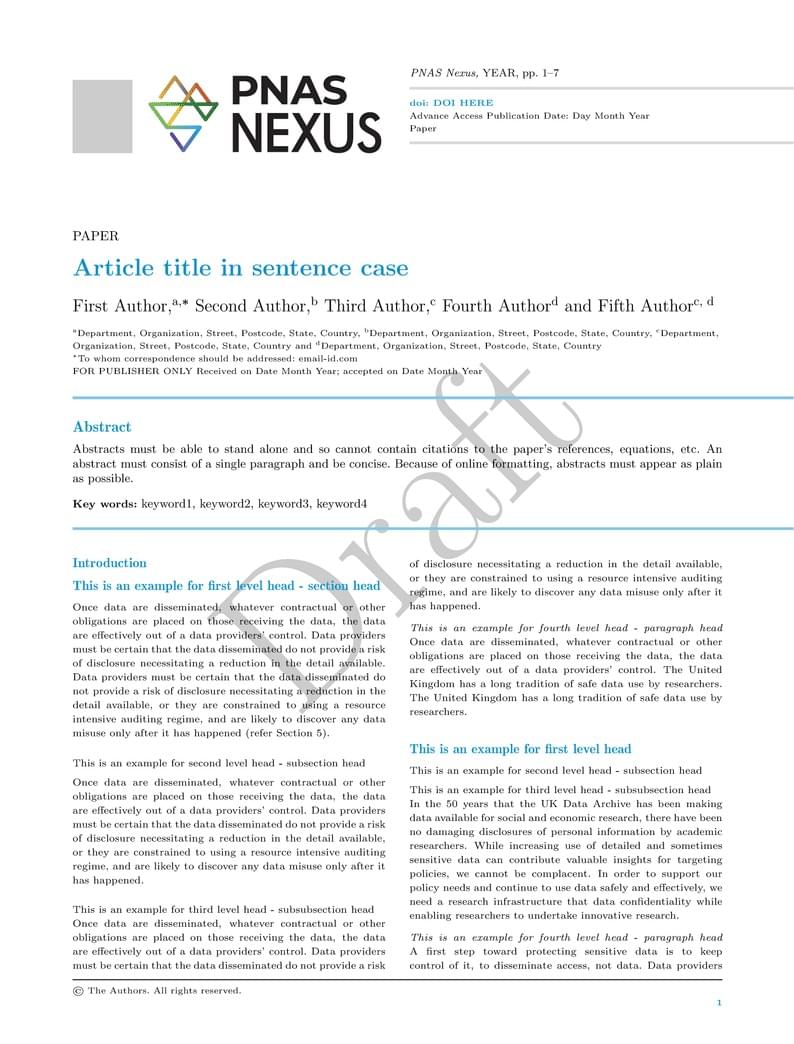
This is a template and guide for preparing papers for PNAS Nexus using the oup-authoring-template class file. See the pnas-nexus-authoring-template.tex file (included and used by default when opening the template) for a simple template to help you get started. The pnas-nexus-authoring-template.tex file (also included) provides instructions for using the additional features in the document class. This is not a general guide on how to use LaTeX, and nor does it replace the journal's instructions to authors.
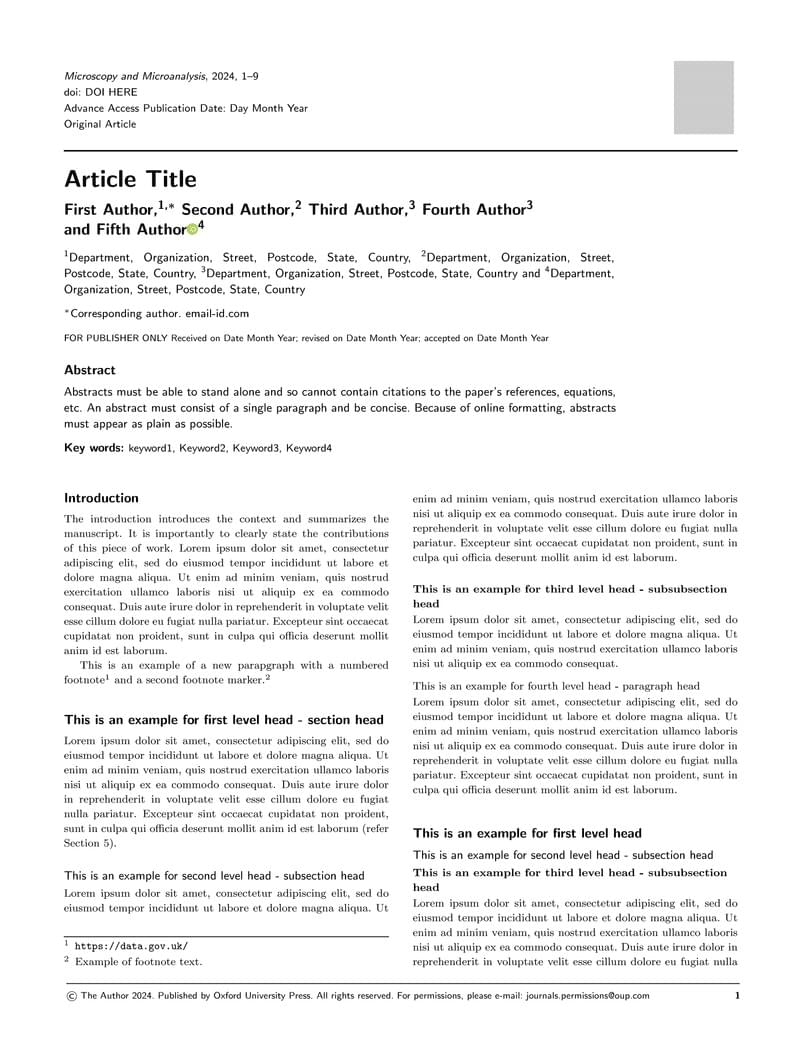
A LaTeX template for the scientific journal Microscopy and Microanalysis (https://academic.oup.com/mam).
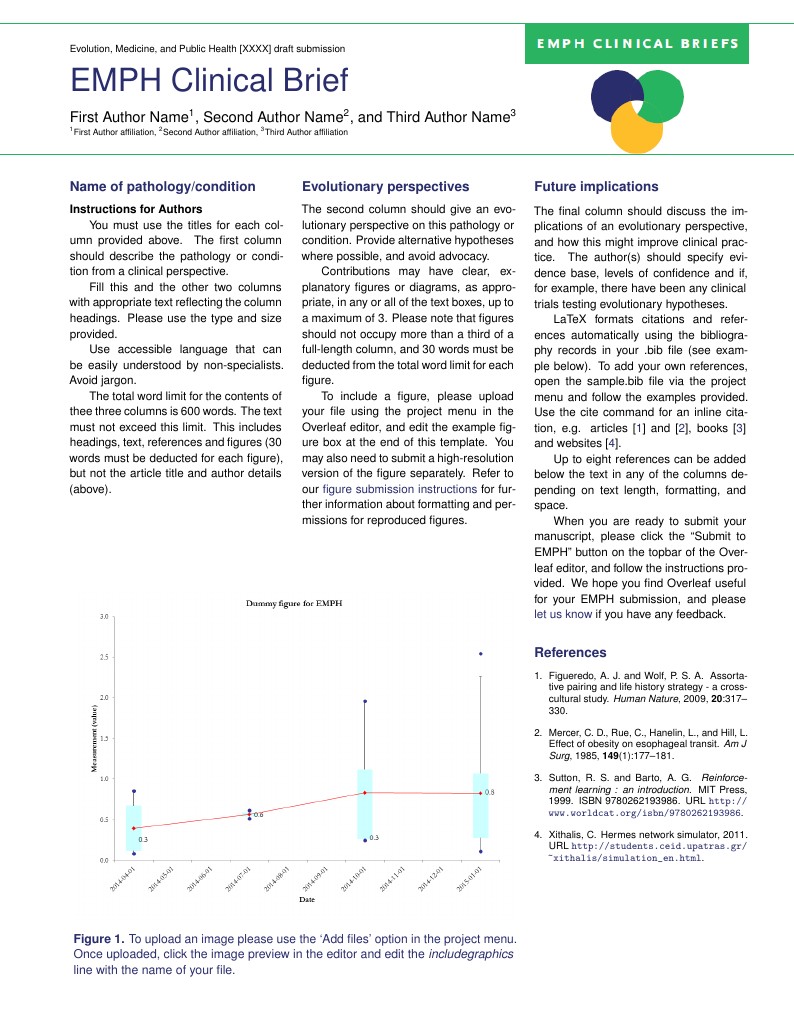
Evolution, Medicine, and Public Health (EMPH) is an open access journal that publishes original, rigorous applications of evolutionary thought to issues in medicine and public health. This template may be used to prepare your submission to EMPH. It contains instructions on how to include text, figures and references, and when you are ready to submit your manuscript please click the Submit to EMPH button on the topbar of the Overleaf editor and follow the instructions provided. We hope you find Overleaf useful for your EMPH submission, and please let us know if you have any feedback. Please note that although it may be possible to fit more than 600 words on the page in the Overleaf template, 600 words is the upper limit for this content type. About EMPH EMPH aims to connect evolutionary biology with the health sciences to produce insights that may reduce suffering and save lives. Because evolutionary biology is a basic science that reaches across many disciplines, this journal is open to contributions on a broad range of topics, including relevant work on non-model organisms and insights that arise from both research and practice. All material to be considered for publication in Evolution, Medicine, and Public Health should be submitted in electronic form via the journal's online submission system. Full instructions for manuscript preparation and submission can be found at http://emph.oxfordjournals.org/ Evolution, Medicine, and Public Health (EMPH) is pioneering a new category of contributions called Clinical Briefs for which we are soliciting further submissions. Briefs are of two types: 1) Clinical—that take an explicitly evolutionary perspective to address a specific condition or pathology and 2) Foundational—that deal with basic topics underpinning an understanding of evolutionary principles that shed light on clinical conditions. This novel type of publication is restricted to a one-page, 600-word summary, including references and figures, designed to be accessible in style and useful for practitioners. Both kinds of briefs use a standard template with three columns: Clinical Briefs use the first to discuss the targeted pathology, the second to discuss an evolutionary perspective on this pathology and the third to discuss future implications. Foundational Briefs use the first column to give a definition and background to the topic discussed, the second to give relevant examples from human biology and public health and the third to give specific examples from clinical medicine. Briefs can be easily downloaded and read from tablets and mobile phones. As with other contributions to EMPH, Briefs are peer-reviewed and searchable online.
\begin
Discover why over 25 million people worldwide trust Overleaf with their work.